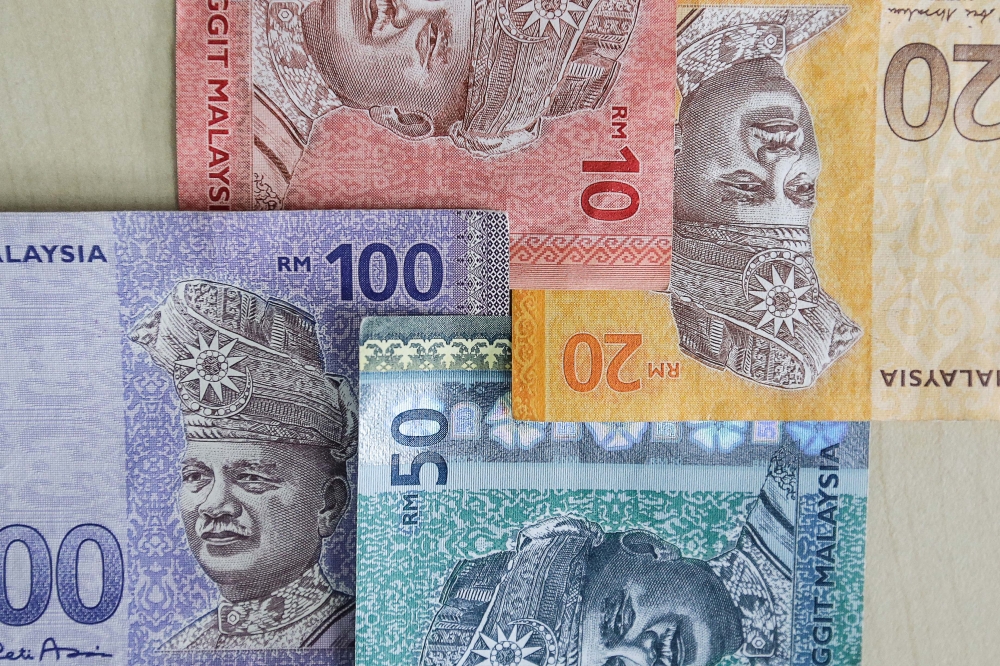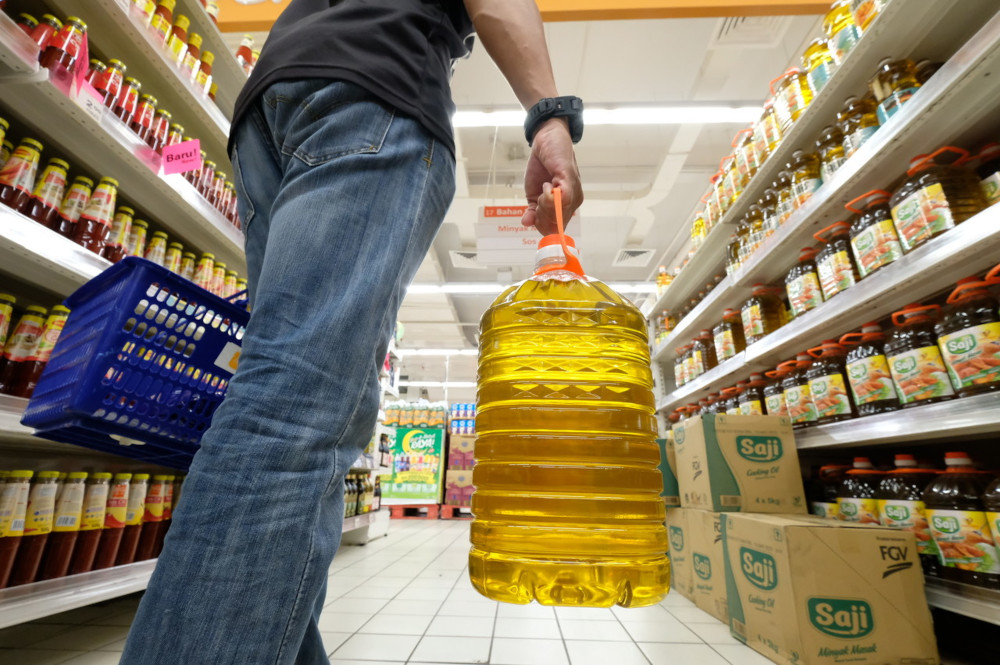KUALA LUMPUR, March 13 — The ongoing conflict between Russia and Ukraine has caused commodity prices globally to skyrocket amid fears and knee-jerk reactions over a possible supply-side fallout as both countries are major producers of, among others, sunflower oil, wheat and corn.
According to the United States Department of Agriculture (USDA), Russia and Ukraine combined account for 78 per cent, 29 per cent and 19 per cent of the estimated 2021/22 global trade in sunflower oil, wheat and corn respectively.
Hence, when war broke out, it sparked fears of possible shortages of not only global cooking oil but also products related to the industry such as soap, biofuel and other food supplies.
Spike in vegetable oil prices
As of March 8, sunflower oil prices were ranging from US$2,900-US$3,000 per tonne (US$1=RM4.19) in the European Union. This has resulted in nothing short of a triple whammy for the commodity sector.
The weather condition and Covid-19 related factors had already caused extreme disruptions, and the war hit just as the situation was seen to be on the mend, with global vaccination driving a return to normalcy.
“We were already facing an extreme global production loss during the past two years due to the weather and Covid-19-related factors, and now the Russia-Ukraine war has created yet another sudden disruption in sunflower oil prices,” ISTA Mielke GmbH (Oil World) executive director Thomas Mielke said.
He said there is severe tightness and consumers could soon be running out of supplies.
Comparing major vegetable oil prices as of March 4, 2022, Mielke said soybean oil price rose to US$1,773 per tonne year-on-year (y-o-y) from US$1,147 per tonne, sunflower oil increased to US$2,100 per tonne y-o-y from US$1,500 per tonne while palm oil climbed to US$1,760 per tonne y-o-y from US$1,010 per tonne.
About 86 per cent of the world’s palm oil is currently produced in Indonesia and Malaysia.
In the physical market, Malaysia’s crude palm oil (CPO) price rose to RM8,400 per tonne, while the CPO futures (FCPO) spot-month contract spiked to RM8,757 per tonne.
At the same time, the price of the third-month FCPO contract breached RM7,000 per tonne this year for the first time.
The increase in the FCPO price was also due to Indonesia’s announcement that it would raise its domestic market obligation on palm oil by 10 percentage points to 30 per cent (producers must set aside 30 per cent of CPO shipments for local buyers).
Jakarta’s move to restrict exports of palm oil from March 10 onwards is to curb the surge in domestic cooking oil prices.
“Demand for Malaysian palm oil may come down when Indonesia starts exporting in high volumes again. This can happen overnight, just like how the Russia-Ukraine war pushed the crop’s price (higher) recently,” according to LMC International Ltd chairman James Fry.
Boon or bane
In the meantime, more than 250,000 Malaysian smallholders could relish the moment before the concern over rising cost and narrow profit margin sets in since fertiliser supplies are also disrupted due to the conflict as both countries are also major fertiliser exporters.
“Russia has bombed a big factory and regional exports are being blocked; therefore, the fertiliser capacity has been destroyed. Russia, Belarus and Ukraine are big fertiliser exporters and this is going to have big consequences in terms of production costs and availability (of fertiliser) for the crops,” Fry told Bernama.
Giving another perspective, the veteran plantation industry analyst opined that a prolonged Moscow-Kyiv conflict could lead to a recession and subsequently reduce the global demand for food.
“It will happen slowly and until then, people will try to maintain their eating patterns and it may take time before they reduce dining out and perhaps opt to re-use their cooking oil for frying,” he said.
While the decline in food demand could be transitional and short-term, the same could not be said for fertiliser and petrol prices, he explained.
The saving grace for Malaysia is that the government subsidises the prices of cooking oil and petrol.
For now, Fry said, the CPO price may stay higher a bit longer.
“The crop will be trading between US$1,700 and US$2,100 per tonne until July while in the third quarter and fourth quarter, it will trade between US$1,600 and US$1,800 per tonne,” he forecast.
The price might narrow further if the labour crunch in Malaysia is sorted out, but that is unlikely for now, he said, adding: “When there is a lack of supply, price is the only mechanism in order to make sure that demand doesn’t exceed supply.”
Effects at grassroots level
Niam Saw Yok, a smallholder who cultivates about 30 hectares of oil palm, said he is expecting the price of CPO to remain at the current high price and shared Fry’s view on higher fertiliser price.
“The price for 50 kilogrammes (kg) of imported fertiliser is around RM180 now. Before this, it was RM120. But now I have to look for a local brand which costs around RM100-RM120 per 50 kg.
“Since I am benefitting from the high crop price, I can still manage the cost by using the local fertiliser brand, which is equally as good as the imported one,” he shared.
Validating another point by Fry, Mydin Holdings Bhd managing director Datuk Wira Ameer Ali Mydin said prices of goods are already going up by 15-20 per cent and it is not just cooking oil.
“The price of flour is also increasing. Unlike cooking oil which we locally produce and subsidise, we import flour and it is not subsidised, and we can expect the price of flour to go up further in the next two weeks.
“So the prices of our roti canai and kuih raya will go up too,” he said.
Nevertheless, he said, the country’s largest halal hypermarket and retail chain has pre-planned its purchase and costing, therefore cushioning the impact.
For the small enterprises though, they could be facing a costing issue.
EppelBakesByAmi founder Hamimah Hamiz Mohamed said she initially absorbed the extra cost, but can’t afford it any longer and might need to pass it to the consumers.
The other way to tackle the situation would be by opting for second or third-tier ingredients, which means compromising on the quality.
“But I don’t want to risk the quality of my cakes and cookies. So, I may have to increase my prices as I cannot absorb the cost anymore and I’m afraid that I will experience fewer orders this year,” said the concerned entrepreneur.
Currently, the government allocates a subsidy for 720,000 tonnes of cooking oil.
Finance Minister Tengku Datuk Seri Zafrul Abdul Aziz said the government will be reviewing the fuel and cooking oil subsidy mechanism, so that it will be more targeted towards aiding and subsidising the vulnerable groups and those who really need help.
He said the current subsidy scheme entails subsidised prices enjoyed by all, regardless of whether they are rich or poor.
The minister said following the conflict between Russia and Ukraine, world crude oil prices have risen sharply to more than US$100 per barrel — the highest level since 2014 — and if it continues, total subsidies for the whole of 2022 are expected to reach RM28 billion compared with RM11 billion for 2021. — Bernama





















